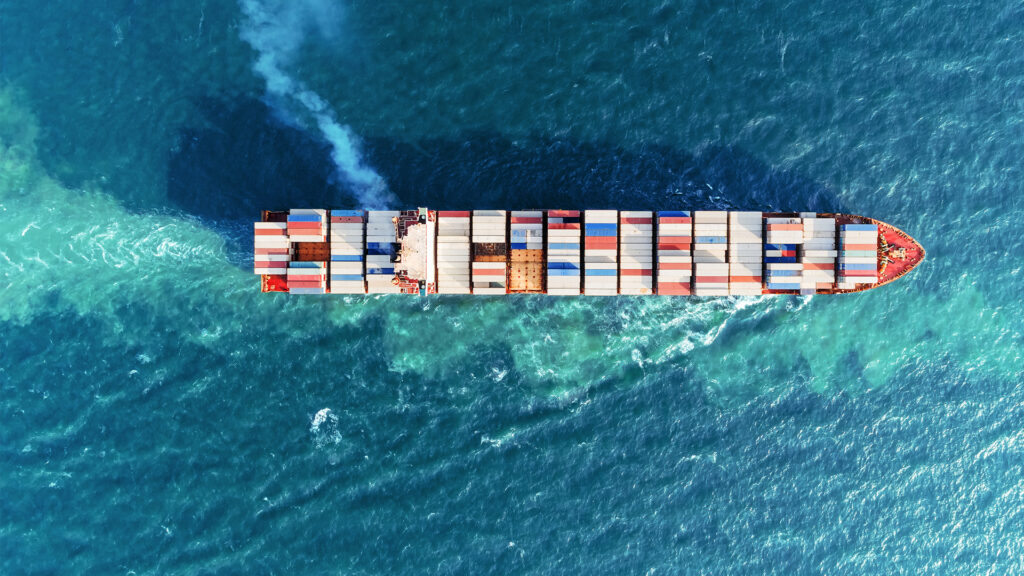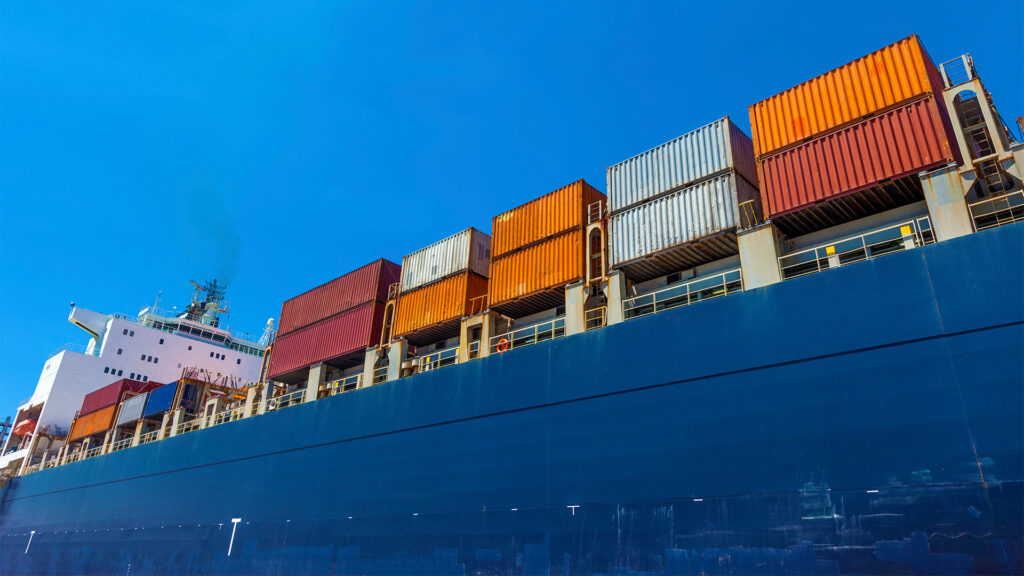
Murky waters: Six key maritime issues to understand before doing business in Indonesia
Indonesia is one of the fastest-growing shipping zones, exporting 32% of the world’s coal cargoes1.
Despite a 4% year-on-year decrease in ship losses in 2017, 32% of global losses occurred in South China, Indochina, Indonesia and the Philippines. Some media have subsequently coined the region the “new Bermuda Triangle”.2
With the growing importance of Indonesia to the shipping industry and the disproportionate number of losses taking place in the region, it is imperative for stakeholders to understand the nuances of Indonesia’s legal and regulatory regime in order to avoid potential pitfalls.
We therefore outlines six key jurisdiction-specific challenges relating to maritime casualties and claims in the table below, with further detail beneath.
| Issue | Application in Indonesia | Key points to be aware of |
|---|---|---|
| Cabotage | Recent postponement of some Cabotage laws for export and import of coal, crude palm oil and rice until 1 May 2020 and to delay the requirement to use insurance from Indonesian companies until 1 February 2019. | Increase in shipping in these areas will no doubt increase the number of incidents. |
| Collisions | Collisions are governed in Indonesia by the Indonesian Commercial Code (ICC). The law of “Tort” (Pebuatan Melawan Hukum), is contained within the ICC. | Indonesia is a codified legal system. Thus, legal decisions are less certain as it is harder to rely on case precedents. |
| Pollution | Indonesia has ratified many of the internationally recognised pollution prevention regulations. | As with other countries, Indonesia takes pollution seriously. Heavy fines are often levied on vessels and vessel detention and crew arrest are commonplace. |
| Limitation of liability | Indonesia is not currently signed up to any of the International Conventions relating to the limitation of liability. | As above, heavy fines can be imposed for pollution and coral damage for example. There is no limitation of liability available for vessels’ interests, which make negotiation with authorities important in establishing vessel release and in reducing fines. |
| Cargo claims | Indonesia has not yet ratified any of the Hague, Hague-Visby, Hamburg or Rotterdam Rules but, in practice, parties may, of course, refer to any of these Rules’ provisions in a bill of lading. The ICC defines the liability for compensation. | In practice, parties may, of course, refer to any of these Rules’ provisions in a bill of lading. Careful drafting is required. |
| Security | It is becoming more common to use a bank guarantee or corporate guarantee from an Indonesian body (possibly then re-insured internationally), rather than letters of undertaking issued by P&I clubs. | The heavy fines imposed, lack of limitation of liability and the difficulty in providing security can result in extensive delays on the vessel if it is detained by authorities. Early negotiations with authorities is important. |
Cabotage
Implementation of the Cabotage principles has been a key factor in the fast pace of Indonesia’s growing importance to the shipping industry in Asia and beyond.
The Cabotage principles broadly require that domestic sea trade be carried out by an Indonesian shipping entity, flagged in Indonesia and manned by Indonesian crew. It aims to increase and promote Indonesian shipping and shipbuilding interests, by restricting certain activities of foreign vessels operating within Indonesian waters.
The latest update to the Cabotage principles was via the implementation of Regulation 82/2017, which also restricted the export of all coal and crude palm oil and the import of rice and goods for government procurement to Indonesia. This stipulates that those cargoes should be shipped by vessels “controlled” by Indonesian shipping companies and be insured by Indonesian companies.
However, following meetings between Minister of Trade Dr. Enggartiasto Lukita and incumbent Indonesian National Shipowners’ Association (INSA), it was established that the country was not yet ready to fully take over the export and import operations of these particular commodities. Thus, regulation 82/2017 looks likely to be revoked.
The recently issued Regulation 80/2018 amended the regulations set out above; in particular by requiring the verification or technical tracking by a surveyor prior to the loading of these goods. It also delays the requirement to use Indonesian ships for export and import of coal, crude palm oil and rice until 1 May 2020 and to delay the requirement to use insurance from Indonesian companies until 1 February 2019.
That being said, Indonesia continues to increase its shipbuilding capacities and, in 2017, it ranked twenty-second in the world for Ownership fleet3. Therefore, it will only be a matter of time until these Cabotage principles will eventually cover those three commodities.
Increases in fleet size will, inevitably, increase the likelihood of loss, damage, collision and cargo claims occurring.
Collisions
Collisions are governed in Indonesia by the Indonesian Commercial Code (ICC), as opposed to the law of tort. Generally speaking, collisions involve the fault of two or more vessels. Under Indonesian law, each vessel’s liability is proportionate to the degree of its fault.
The International Regulations for Preventing Collisions at Sea 1972 (COLREGs) were ratified by Indonesia; however, the Brussels Collision Convention (formerly the Convention for the Unification of Certain Rules of Law with respect to Collisions between Vessels) has not been ratified4.
Broadly, only causative faults should be taken into account when considering how liability should be apportioned. A causative fault is one that contributed to the casualty from which the damage or loss arose. Breaches of COLREGs are usually considered to be seriously accountable. However, there is no presumption of fault against a ship because she is in breach of the collision regulations.
Pollution
Indonesia has ratified many of the internationally recognised pollution prevention regulations, such as MARPOL, UNCLOS and CLC, although IOPC has not been ratified.
Under Indonesian law, a breach of these regulations may result in a fine. However custodial sentences for the crew are becoming more commonplace, as well as vessel arrests.
Limitation of liability
Indonesia is not currently signed up to any of the International Conventions relating to the limitation of liability.
Parts of the ICC have not been amended since Indonesia’s independence in 1945 and, as a result, limitation of liability for a collision or cargo claim is limited to 50 Gulden per cubic metre of the net tonnage of the vessel (Gulden being an old form of currency in the Netherlands).
There do not appear to be any case precedents dealing with limitation of liability in Indonesia. The assumption can therefore be made that parties have either settled out of court or not applied the provisions in court. Thus, the amount of the limitation fund that an Indonesian court may award – if any – is uncertain.
Cargo claims
Generally, the ICC provides that the carrier is liable to provide compensation for any damages arising from its inability to deliver the cargo, unless caused by force majeure/act of God.
Indonesia has not yet ratified any of the Hague, Hague-Visby, Hamburg or Rotterdam Rules but, in practice, parties may, of course, refer to any of these Rules’ provisions in a bill of lading.
The ICC provides that the shipper, lawful holder of the bill of lading, cargo owner or cargo insurer (through subrogation) is entitled to bring a cargo claim against the carrier for loss of damages arsing from the carrier’s failure to deliver.
A statutory one-year time bar to bring such a claim is imposed.
A claimant may also bring, on the basis of an unlawful act, a claim under the Indonesian Civil Code, which is comparable to the law of tort.
Security
Generally, there is no mandatory “type” of security under Indonesian law. Nevertheless, it is becoming more common to use a bank guarantee or corporate guarantee from an Indonesian body (possibly then re-insured internationally), rather than letters of undertaking issued by P&I clubs.
Key takeaways
In summary, two key points should be borne in mind:
- It is likely that, with the increase of maritime shipping and trade in Indonesia, more casualties and claims will arise.
- Indonesian law can be very localised, with several commonly used international regulations not in use.
It is, therefore, essential when facing any maritime incidents or crises involving Indonesia to promptly seek specialist legal advice from maritime lawyers well-versed in the specific nuances of Indonesia’s legal and regulatory regimes.
Swift, correct action can often facilitate a timelier resolution of an incident , which, in the long run, reduces the incurrence of further costs and damages.
Footnotes
- Review of Maritime Transport 2017 – United Nations Conference on Trade and Development 2017, http://unctad.org/en/PublicationsLibrary/rmt2017_en.pdf, page 11)
- Safety and Shipping Review 2008 – Allianz Global Corporate & Specialty, https://www.agcs.allianz.com/insights/white-papers-and-case-studies/safety-and-shipping-review-2018/
- Review of Maritime Transport 2017 – United Nations Conference on Trade and Development 2017, http://unctad.org/en/PublicationsLibrary/rmt2017_en.pdf, page 28)]
- Presidential Decree No. 50 of 1979 on the Ratification of the Convention on The International Regulations For Preventing Collisions At Sea, 1972
Download a PDF version of ‘Murky waters: Six key maritime issues to understand before doing business in Indonesia’











